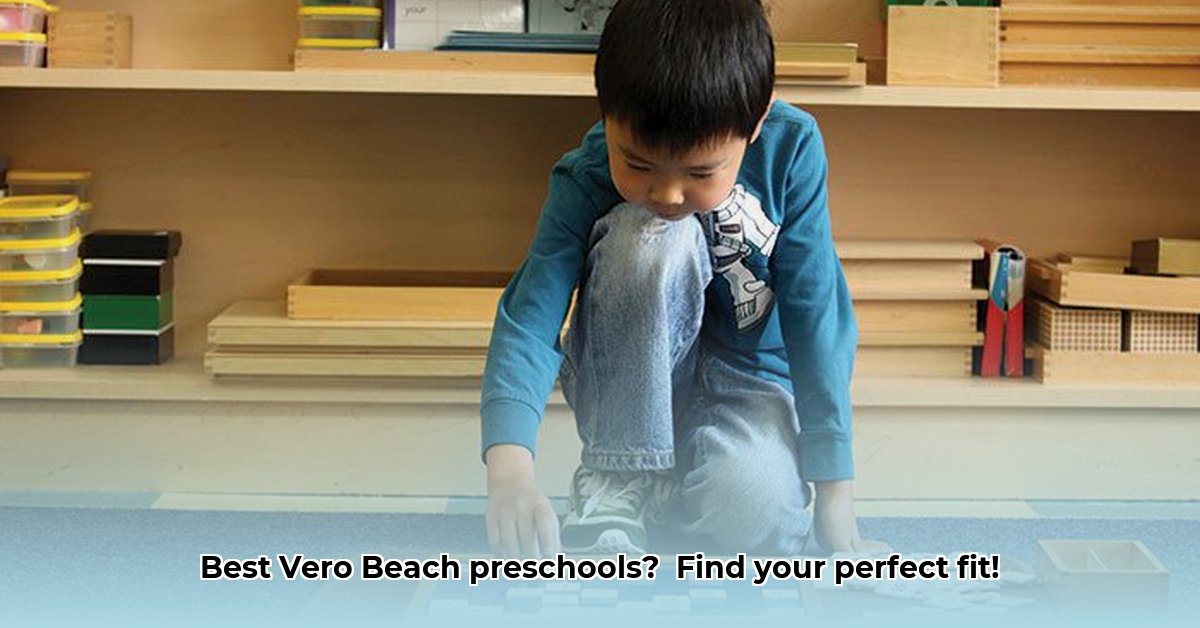
Choosing the right preschool for your child is a big decision, but it doesn't have to be overwhelming. Vero Beach offers a diverse range of preschools, each with its own approach to early childhood education. This guide will help you navigate the options and find the perfect fit for your family.
Understanding Your Needs: A Family Checklist
Before you start researching individual preschools, take some time to reflect on your family's needs and priorities. Consider the following:
- Your Child's Personality and Learning Style: Is your child an independent explorer who thrives in a hands-on environment, or do they prefer a more structured, routine-based setting? Understanding your child's temperament will help you identify compatible teaching styles.
- Your Preferred Learning Approach: Do you prefer a play-based curriculum where learning is integrated through activities and exploration, or a more academic approach with a structured lesson plan?
- Your Budget: Preschool tuition varies significantly. Establish a realistic budget that includes tuition, potential additional fees (like art supplies or field trips), and transportation costs.
- Location and Convenience: Consider the preschool's proximity to your home or work, ensuring easy drop-offs and pick-ups.
Exploring Vero Beach's Preschool Options
Vero Beach offers a variety of preschools, each with its unique strengths. Some specialize in specific educational philosophies like Montessori or Reggio Emilia, while others offer more traditional preschool experiences. To start your search, you can use online resources like Care.com, but remember that online reviews represent only a fraction of the experiences.
Key Factors to Consider: Your Preschool Checklist
As you research and visit different preschools, keep these key factors in mind:
Accreditation and Licensing: Look for nationally accredited preschools (this indicates adherence to established quality standards) and ensure they are properly licensed by the state (demonstrating that they meet basic safety and operational requirements).
Class Size and Teacher-Student Ratio: Smaller class sizes generally translate to more individualized attention for your child. Aim for a lower teacher-to-student ratio (e.g., 8:1 or lower). This allows for more personalized support and interaction.
Teaching Philosophy and Curriculum: Understand the preschool's approach to early childhood education. Does it align with your values and your child's learning style? Consider whether the preschool uses a play-based, project-based, or more academic curriculum.
Safety and Security: Prioritize a safe and secure environment. Inquire about security measures, emergency procedures, and protocols. A site visit allows you to assess the physical environment and observe safety practices firsthand.
Location and Convenience: Carefully consider the preschool's location relative to your home or workplace. Think about factors like traffic, parking, and ease of drop-off and pick-up.
Cost: Obtain a clear understanding of tuition fees, additional charges, payment options, and the availability of financial aid or scholarship programs.
Your Step-by-Step Preschool Selection Journey
Finding the right preschool is a process, not a race. Follow these steps for a successful search:
Create a Shortlist: Based on your family's priorities and the factors discussed above, create a list of 2-3 preschools that appear to be a good fit.
Schedule School Visits: In-person visits are essential. Observe classroom interactions, speak with teachers, and get a feel for the school's atmosphere.
Ask Questions: Prepare a list of questions to ask during your visits. Inquire about curriculum, teaching methods, discipline strategies, teacher qualifications, parent involvement opportunities, and detailed safety procedures.
Compare and Reflect: After your visits, take time to compare each preschool. Consider your observations, impressions, and any lingering questions or concerns.
Trust Your Gut: Make your final decision based on your observations, insights, and intuition. The best preschool is the one that feels like the right fit for your family.
Different Preschool Types: A Quick Overview
| Preschool Type | Pros | Cons |
|---|---|---|
| Montessori | Child-centered; emphasizes independence; hands-on learning. | Can be expensive; may not suit all learning styles. |
| Reggio Emilia | Focuses on creativity, collaboration, project-based learning. | Requires highly trained teachers; may lack structured routines. |
| Traditional Preschool | Structured curriculum; incorporates play; familiar approach. | May be less individualized; potentially less emphasis on exploration. |
| Private Preschools | Smaller class sizes; specialized programs; more individualized attention. | Typically more expensive; waitlists may be common. |
Remember, the perfect preschool is the one that best meets your family's unique needs and preferences. Take your time, trust your instincts, and enjoy the journey of finding the ideal learning environment for your child.